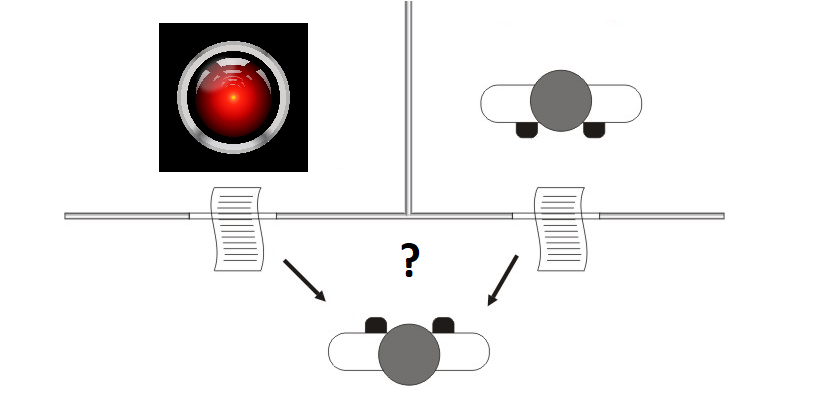The English mathematician Alan Turing (1912-1954) was one of the most influential founders of computer science. The “Turing machine” from 1936 wasn’t a machine in a common sense, but a conceptual construction. It proved that every imaginable mathematical problem can be solved by algorithmic step-by-step manipulations of symbols.
In World War II, Turing’s work at Bletchley park, a secret service institute north of London, was essential in decrypting the German Enigma code. Turing became famous for it. Later he developed one of the first chess algorithms. In our days, it sounds a bit strange to us, but Turing had to calculate the moves himself, because: there was no hardware yet.
The Turing test, an intelligence test for machines that was fully written out at the Dartmouth Summer Research Project on Artificial Intelligence in 1956 was visionary – up to now. If humans are not able to recognize a machine as their conversational partner, this machine has to be considered as artificially intelligent.
 The Turing test for machines: am I talking to a person or to a machine?
The Turing test for machines: am I talking to a person or to a machine?
A technology to mimic human intelligence – proved by conducting a conversation – defines the existence of artificial intelligence. The view on Artificial Intelligence as a replica of human intelligence (that may even surpass it) remained popular to this day.
The fictitious computer HAL 9000 in Stanley Kubrick's science fiction movie "2001: A Space Odyssey" (released in 1968), equipped with a very warm and confidence arousing voice, became a notorious AI machine. Unfortunately, HAL considers himself to be more intelligent than his human mates. HAL kills the humans because he regards them as a risk for the mission.
The idea that intelligent machines could take over one day, haunts many people's minds. But this isn’t realistic at all. Up to now, no computer ever had a minimal chance to pass the Turing test. Turing’s definition of Artificial Intelligence turned out to be a far too strong claim. Next week, our blog will inspect a different AI definition: that one of learning.
You think on a task for an intelligent machine? Study it with AI computers available at omtec.de.
